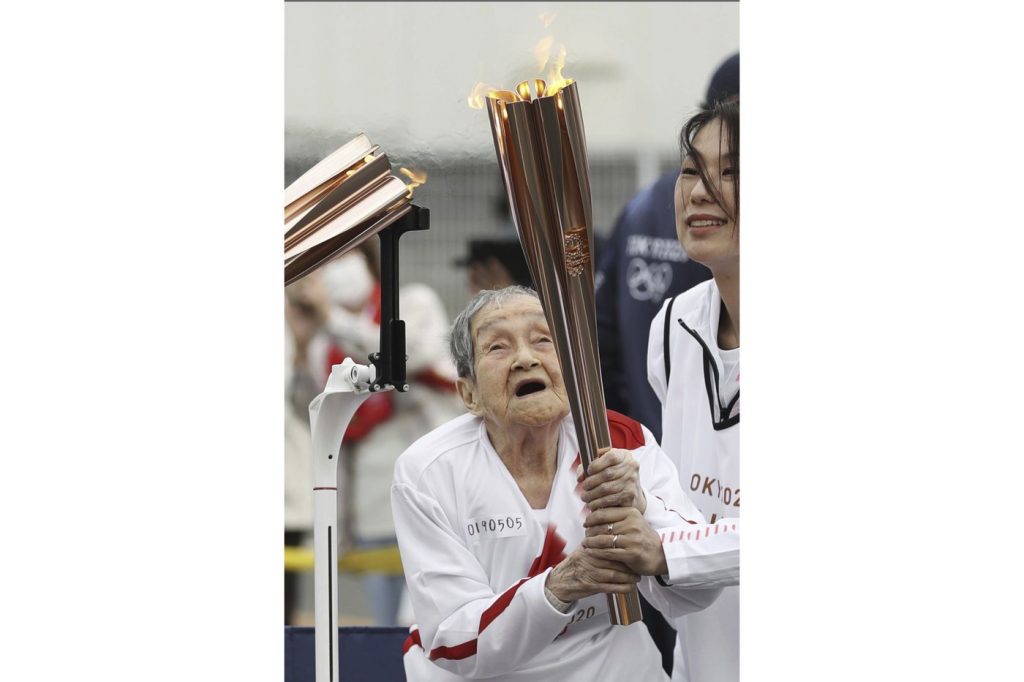TOKYO (AP) — Shigeko Kagawa, a 114-year-old retired physician from Nara Prefecture, has become Japan's oldest living person following the passing of Miyoko Hiroyasu, who also held the age of 114. This announcement was made by Japan’s Ministry of Health, Labor and Welfare. Kagawa's remarkable age underscores Japan's reputation for extraordinary longevity, reflecting the country’s demographics and the health of its elderly population.
Kagawa has had a distinguished career in medicine, graduating from medical school before the onset of World War II. During the war, she served at a hospital in Osaka, and after the conflict, she took over her family’s clinic, specializing as an obstetrician and gynecologist. Shigeko Kagawa continued her practice until the age of 86 before retiring. Her life has been characterized by commitment to health and wellness, and at the remarkable age of 109, she participated in the Tokyo 2021 Olympic torch relay, becoming one of the oldest torchbearers in Olympic history.
When asked about the secret to her long life, Kagawa humorously responded to TOS News in 2023, stating, “I don’t have any. I just play every day. My energy is my greatest asset. I go where I want, eat what I want, and do what I want. I’m free and independent.” Her emphasis on freedom and independence appears to be a central theme in her approach to life.
Miyoko Hiroyasu, Kagawa’s predecessor as Japan's oldest person, also led an active lifestyle until her death. Born in 1911, Hiroyasu studied art in Tokyo and worked as a teacher in Hiroshima Prefecture while raising three children. Her days in a nursing home in Oita Prefecture were filled with reading newspapers, sketching, and playing card games. On her 113th birthday, she expressed gratitude for her health, showing a positive attitude that resonates with both Kagawa's and Hiroyasu’s stories.
Despite an overall decline in Japan's population, the number of elderly individuals continues to rise. As of September 1, 2024, a record 36 million people aged 65 or older made up 29% of Japan's total population, marking the highest proportion of seniors in the world. Additionally, those aged 80 and above now account for 10% of the population according to data from the Ministry of Internal Affairs and Communications. The latest statistics reveal that there are 95,119 centenarians across Japan, showcasing the nation’s aging demographic.
The stories of Shigeko Kagawa and Miyoko Hiroyasu serve as inspirational examples of longevity and vitality in Japan's elderly community. As the nation grapples with the implications of an aging population, the lives of individuals like Kagawa reinforce the importance of independence, health, and active living.











